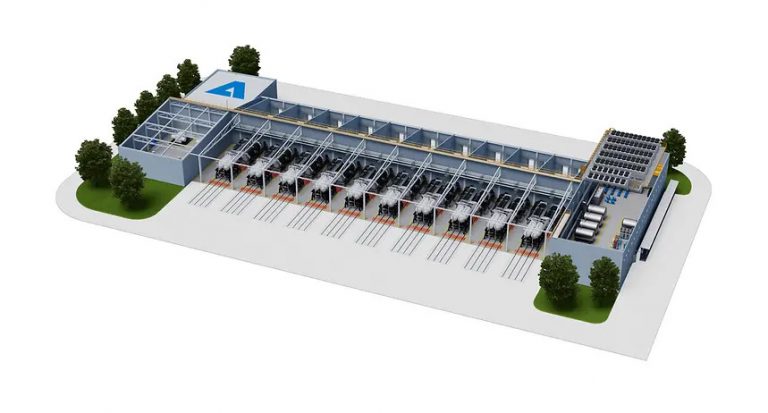Koppö Energia of Finland has selected international technology group ANDRITZ to perform the Front-End Engineering Design (FEED) for a large-scale plant to produce green hydrogen.
This order is a milestone in ANDRITZ’s strategy to become one of the world’s leading industrial partners for large-scale green hydrogen production plants.
The plant, with a capacity of 200 MW, will be built in Kristinestad, Finland as part of a Power-to-X project. The customer, Koppö Energia, is a joint venture of Germany-based Prime Capital, a renowned asset manager specializing in alternative energy projects, and CPC Finland, a subsidiary of project developer and green power producer CPC Germania.
The Front-End Engineering Design provided by ANDRITZ will include the complete hydrogen plant, incorporating the alkaline electrolyzer technology of HydrogenPro. Based on the design, the joint venture intends to place the order for the Engineering, Procurement and Construction (EPC) of the green hydrogen production plant at the beginning of 2024.
CEO Joachim Schönbeck said: “Green hydrogen will play an essential role in the clean energy transition. We are very happy to have received our first order in this sector and confident that – based on our long track record of implementing large-scale projects – we can contribute to making this project a success.”
“We conducted a diligent selection process before awarding the FEED agreements for our energy transition project. ANDRITZ convinced us with their comprehensive solution and system integration expertise,” said Thomas Zirngibl, Board Member, Koppö Energia Oy.
The hydrogen in Kristinestad will be produced using renewable energy, mainly wind power. Up to 500 MW of wind and 100 MW of photovoltaics power will be developed under the Koppö Energy Cluster to supply the green hydrogen plant with electricity.
Hydrogen produced from renewable sources is considered a virtually carbon-free energy carrier, making it a vital component in combating climate change. The plan for the green hydrogen produced in Kristinestad is to process it into sustainable liquefied synthetic methane (SLSM) for fueling heavy transport in a sustainable way.
In general, green hydrogen and its derivates are expected to replace fossil fuels on a large scale in the future, especially in energy-intensive, hard-to-abate industries such as steel, cement and chemical, as well as transport by ships and trucks.



